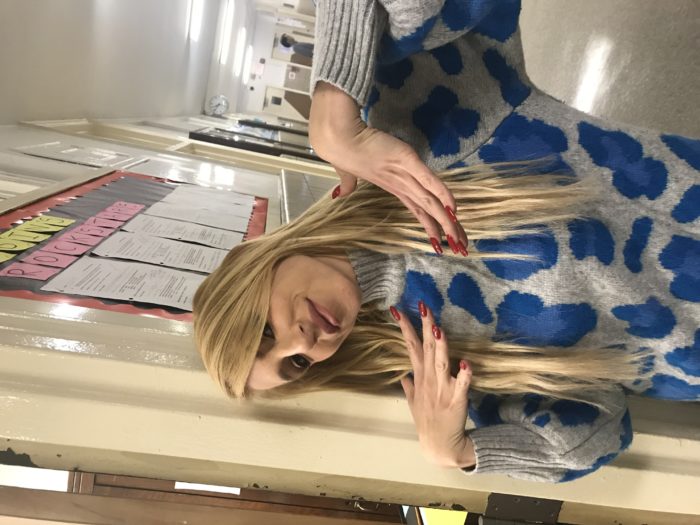By Adnaan Elahi
Introduction: Ms. Rubin is an English teacher at MCSM. She mostly teaches ninth grade freshman writing classes and introduces her students to the world of writing and literature. Through her intellectual approach to literature, she encourages her students to look past words and further analyze text to gain a deeper understanding of themes and other literary devices.
Q: What persuaded you to become an English teacher and what is one thing that you like about the subject?
Ms. Rubin: My mom was a math teacher and initially I went to college thinking that I would be a math major, and I have a minor in math. I switched my major from math to English and theatre, since I’ve always liked reading plays and I loved the intellectual curiosity of English and the knowledge and comfort that I got through books. I paved the way to becoming a teacher because I really liked helping people and tutored in college. I also love how I can teach the same book for years, but learn something new from it each time myself.
Q: How has teaching impacted you as an individual?
Ms. Rubin: I think it’s made me more compassionate and understanding and empathetic. I think it’s created this level of discipline and rigor in me that I didn’t know existed because there are so many factors that go into it. You’re responsible for over one hundred kids at all times, and have to understand their needs and personalities and work with that.
Q: What was your first impression of MCSM, or more specifically, what made you want to teach here at MCSM?
Ms. Rubin: I’ve taught out West for over a decade and I’m certified in four different states. New York has this level of rigor and challenge that other states don’t have. They overcompensate for a pool of kids; you’re either in a great school or in a school that struggles. I’ve taught IB/AB and worked with very rigorous kids, I’ve taught college 101 and 102, and worked at the drama department at Julliard. I’ve always been placed in testing years, so I could help students improve test scores. When you have experience working in a specific field/area, you’re always placed in what you are the best in—and I was always placed with Honors students. I researched this school, and it has excellent reviews and high retention rates. There is a level of friendship and support between colleagues here. I love the principal, and the kids are really smart and hardworking.
Q: How and why do you think MCSM is different from other high schools and particularly how do you think your class is different?
Ms. Rubin: I’ve always taught Honors classes and although the class I teach isn’t Honors, it feels like it’s an Honors class. The kids are here to learn and better themselves. They really have a high level of intellectual curiosity and want to challenge each other. I’ve always taught various forms of writing and I love that this school preps freshman with a writing course which teaches you the foundational skills of writing which can help you be successful on the regents exams.
Q: How do you think living in New York City plays a critical role in the academic lives of your students?
Ms. Rubin: New York pushes people to extreme levels of “survival of the fittest”. All my students share this bond that they see the weird stuff on the subway and can see people trying to make the best of their situation. I believe that education can be the gateway out of a lot of issues that New Yorkers face. You have people who are in both sides of the spectrum in New York. You can have the best of the best and the worst of the worst, so this pushes people to be in the best of the best category. There are so many cultural opportunities as well in New York—with places like museums and theatres—which permeates education in ways that most other people don’t have access to.
Q: What advice do you have for students who aspire to do well in your class and/or aspire to be writers in the future?
Ms. Rubin: I think it’s about discipline and understanding the merit of what you are learning, and why people are helping you. You have this opportunity in high school to have this connection with your teachers who are advocating for you and who want you to do well, whereas in college you don’t always get that. As for advice to a writer, I would say, based off my experience as a writer, that you should write for passion over logic. If you feel the need to write a story, and you’re meant to be a writer; there’s a lot of rejection that comes along with writing, and you need to be persistent. Keep on putting your stories out there, and find opportunities for yourself.
